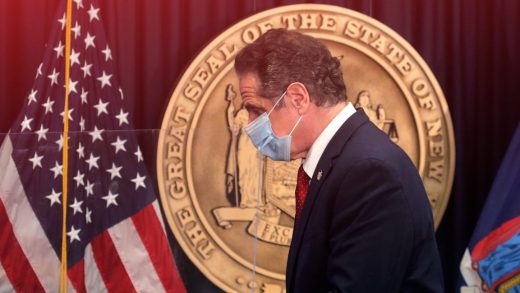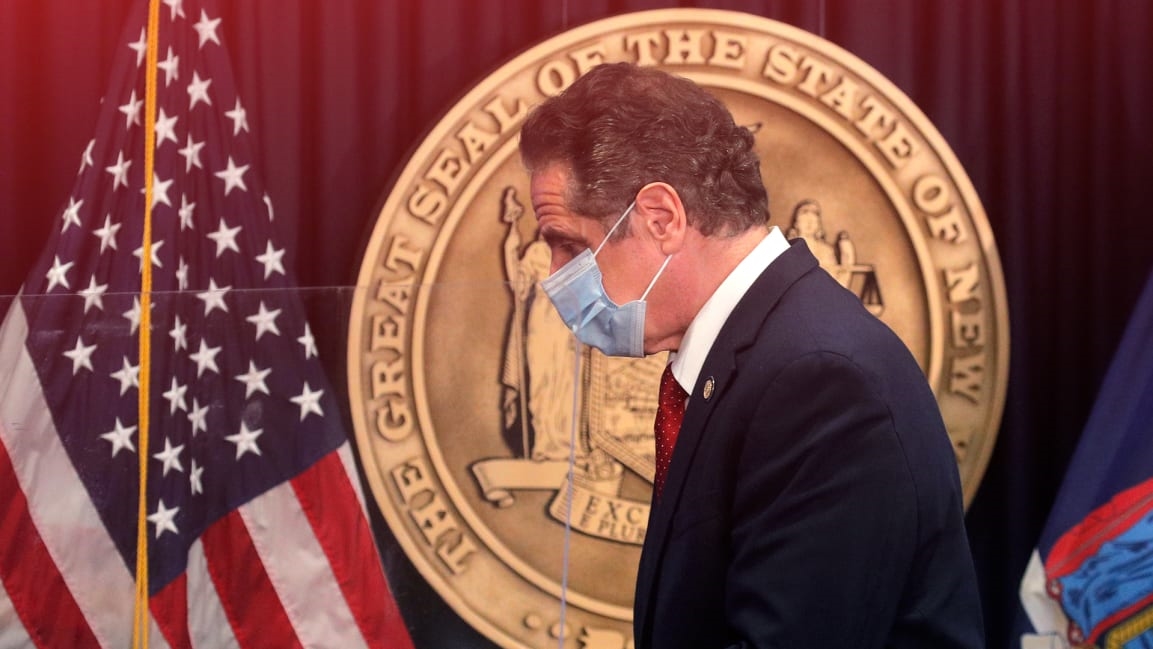When should a leader step aside after scandal?
New York governor Andrew Cuomo’s reputation has plummeted in 2021. Over the past several weeks, allegations have emerged that he covered up nursing home deaths related to COVID-19. In addition, at least eight women have accused him of sexual harassment and inappropriate behavior. In the wake of these scandals, several people—including prominent members of his own party—have called for him to resign. Two simultaneous investigations are now underway.
Politicians and other leaders have taken a variety of approaches to handling allegations of misconduct and the facing consequences of their actions. Some, like former Missouri governor Eric Greitens and former senator Al Franken, chose to resign from their posts. Others, like former presidents Bill Clinton and Donald Trump, continued in their roles.
However you feel about someone politically, there are lessons to be learned about when it makes sense to step down after a scandal. Assuming that the charges have merit, there are some mistakes that leaders can return from, and others that they cannot—or should not.
Here are three criteria leaders should consider when making this decision:
A matter of trust
A central issue is whether the leader can ever be trusted after the scandal. Trust is crucial for leadership, because leaders have to set a vision for the future and get people to follow them. The more closely that a scandal relates to a leader’s job function, the harder it will be for that leader to inspire the trust necessary for an organization to move forward. That is part of what makes the allegations that Cuomo altered COVID-19 numbers so significant. He must continue to lead through the pandemic, and this assertion makes him significantly less credible.
Likewise, sexual harassment undermines Cuomo’s ability to lead effectively and represent all of his constituents. An environment in which women serving in the administration have to be on guard for unwanted advances is not one conducive to conducting the state’s business. An inclusive work environment is one in which people feel free to bring their whole self to work. Leaders credibly accused of sexual harassment make it impossible for their employees to let down their defenses and engage with their jobs.
Who is supportive?
In many organizations, leaders are part of a team that moves an organization forward. As a result, it is critical that a leader have a coalition of other key individuals who will help them to carry out their objectives. In government, that coalition often involves other politicians. In companies, there is a team of leaders and managers who must ensure that the vision of a leader is turned into concrete steps and executed.
Organizations respond in one of two ways to scandals. At times, key allies will rally around a leader, which allows them to continue in their role. Certainly, the high level of support that Bill Clinton and Donald Trump had from members of their own party allowed them to continue in office despite scandals. At other times, though, team members lose faith in a scandal-plagued leader. It was pressure from their own parties, for example, that forced Richard Nixon and Al Franken to resign.
Another uphill battle for Cuomo is that many of the calls for his resignation have come from members of his own party including prominent national leaders (like Charles Schumer and Alexandria Ocasio-Cortez), and over 60 members of the New York state House and Senate.
How much moral force is needed?
One of the things that makes something a scandal is a violation of a core value that leads to a sense of moral outrage. It is not just that the leader has done something wrong—they have done something immoral.
Not all leadership situations, though, require the moral high ground to be successful. Turning a company around by cutting costs and increasing revenues may require an operational focus. Similarly, executing a vision that the organization has already accepted involves a lot of focus on daily routines. In these instances, a minor moral transgression by a leader need not make people uncomfortable with that person’s operational focus.
Establishing a clear vision for the future often does require bringing some moral force to bear. Corporate leaders often try to instill a sense of common mission among employees in order to create action. This sense of mission plays to the values of employees and so they have a clear moral dimension. This is true not just for companies that have a clear social mission, but even for large companies like Procter & Gamble, whose mission statement explicitly mentions the goal to “improve the lives of the world’s consumers now and for generations to come.”
During the COVID-19 pandemic, appeals for social distancing, mask use, and vaccines have often been based on engaging values around people’s responsibility for one another. The allegations against Andrew Cuomo are a significant problem for him, because promoting safe behavior during the pandemic will now look hypocritical. That could actually put more lives at risk. This is particularly problematic, because critics have charged that Cuomo’s unwillingness to be truthful about the ongoing pandemic was an attempt to protect his own ego.
Finally, the hypocrisy of a leader can undermine significant efforts of others. Cuomo spoke out loudly against Donald Trump and others when they were accused of sexual harassment and assault, but is now refusing to resign. Cuomo’s own behavior makes it more difficult for people fighting harassment to be taken seriously, because it raises the specter that calls for changes in workplace behavior are just self-serving attempts to tear other people down or virtue signal, rather than honest efforts to change the culture.
(31)



